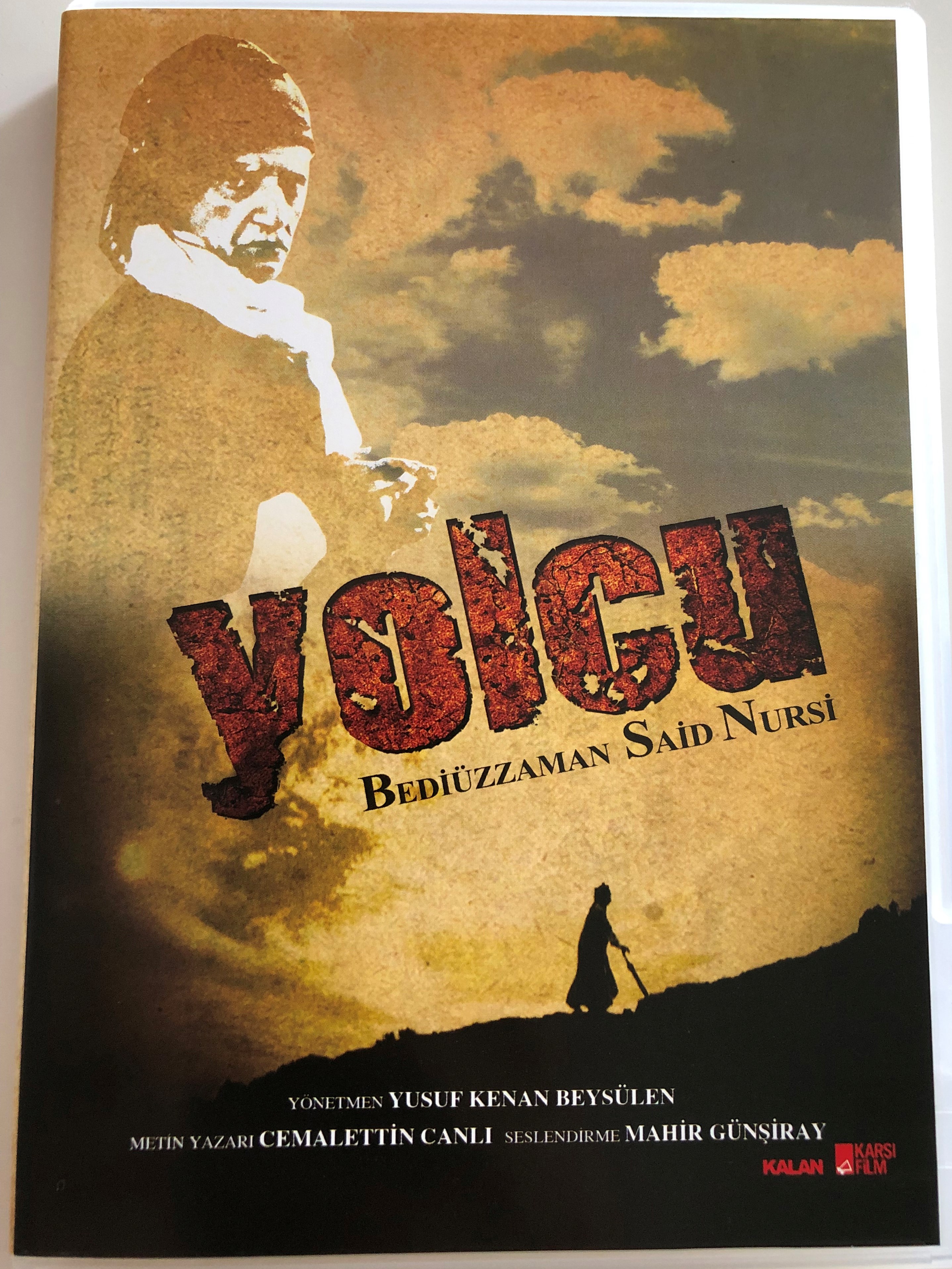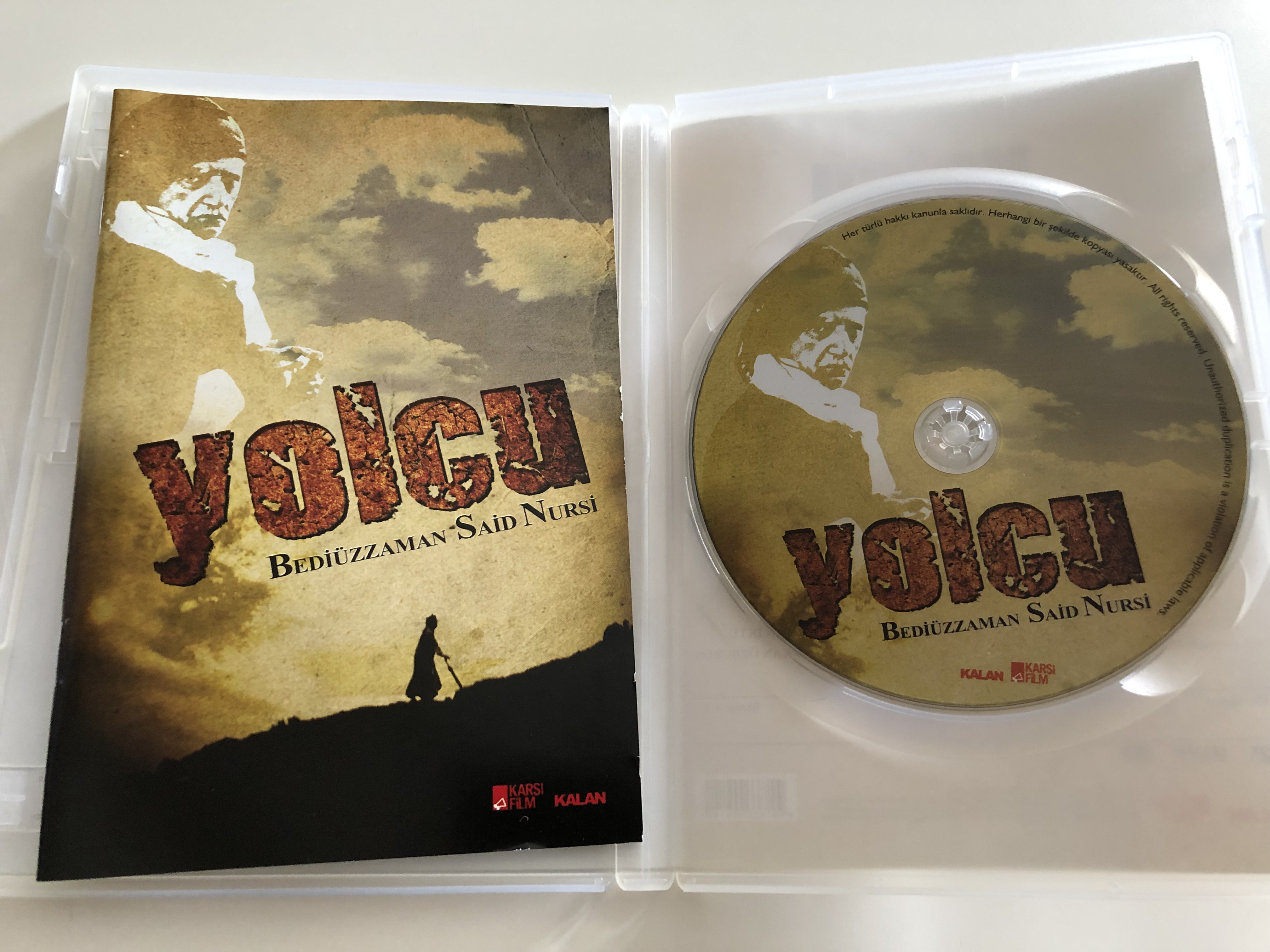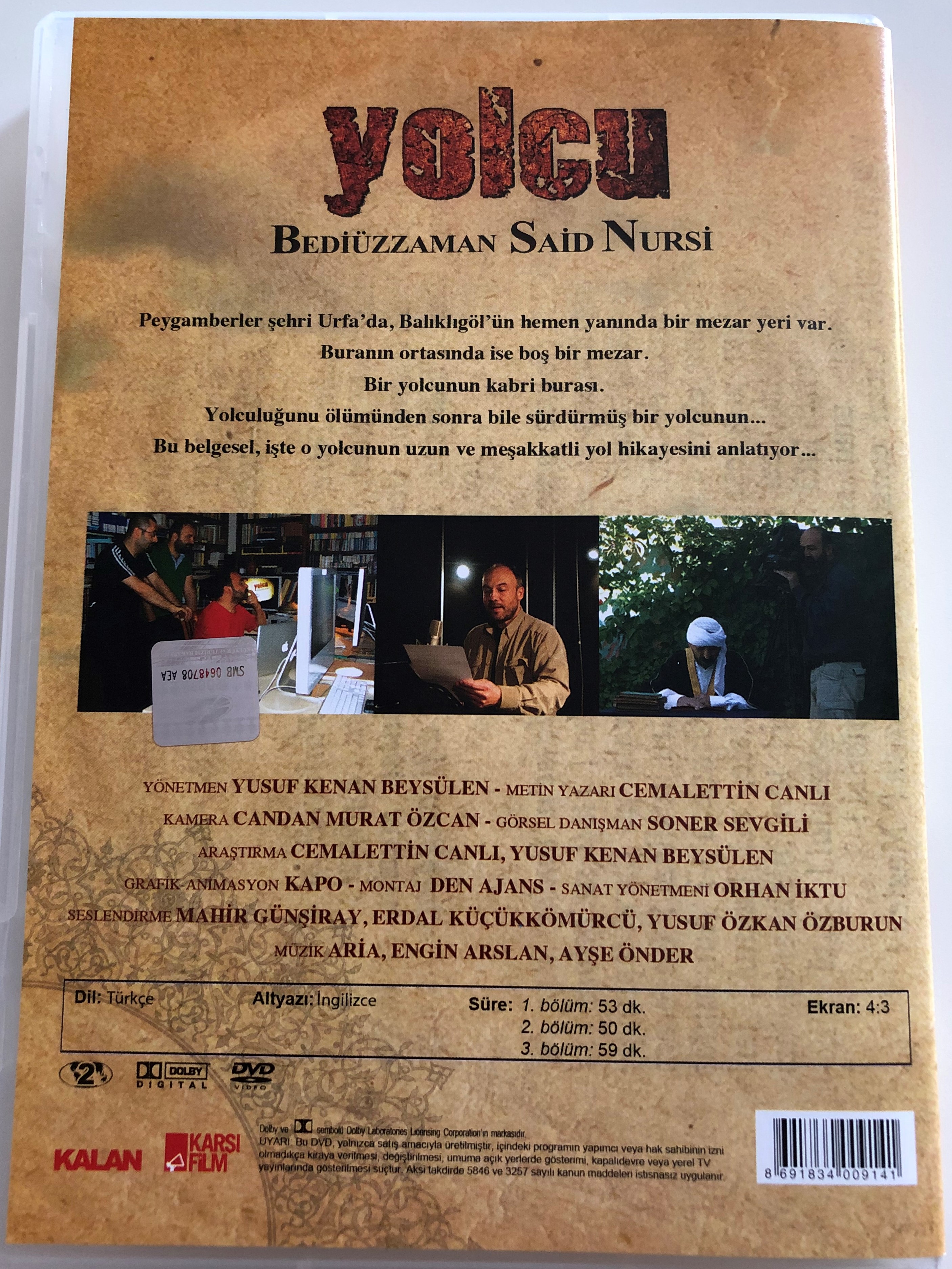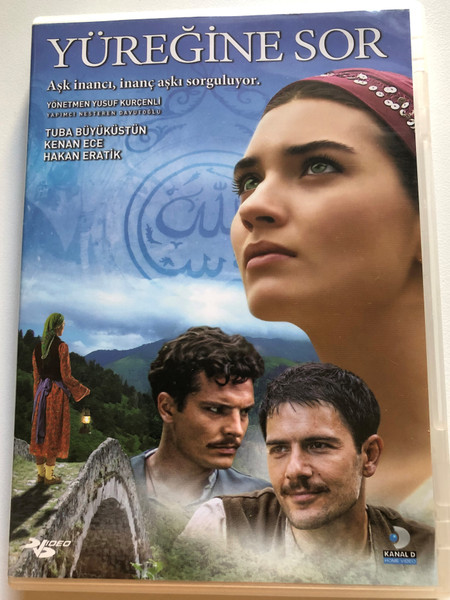Description
Yolcu - Bediüzzaman Said Nursi DVD 1994 Passenger / Directed by Yusuf Kenan Beysülen / With Historical booklet about Said Nursi' the scholar's life
UPC 8691834009141
REGION 2 PAL DVD
MADE IN TURKEY
AUDIO: TURKISH 2.0
SUBTITLES: English
TOTAL RUNTIME: 162 MINUTES
Turkish Summary:
Bitlis’in ücra bir dağ köyünde başlayan yaşamında, 19. yüzyılı 20.yüzyıla bağlayan sancılı bir yolun yolcusu oldu...
Osmanlı’nın yerini Cumhuriyet’e devrine ve iki dünya harbine tanıklık etti.
İsyanlar, savaşlar, sürgünler, mahkemeler, esaretler gördü.
Koşulsuz biat edenleri ve peşinen reddedenleri oldu.
Öldüğünde ardında “Nurculuk” akımını bıraktı.
Bu akım, Türkiye’nin en büyük cemaatini doğurdu. Bünyesinden devlet adamları yetiştirdi. Türkiye’nin dini, siyasi gündemini belirledi.
Bir dönem yasaklanan risaleleri 40’ı aşkın dile çevrildi. Hakkında uluslararası konferanslar düzenlendi.
Ölümünün üzerinden yarım asır geçti. Bugün mezarının yeri bile belli değil; ama hakkındaki tartışma hala sürüyor.
Kimilerinin gözünde “Cumhuriyet’in düşmanı bir gerici...”
Kimine göre “Uslanmaz bir Kürt milliyetçisi...”
Kimine göre ise “İmanı kurtaran, çevresine nur saçan bir evliya...”
English Summary:
Aziz Üstad Bediüzzaman Said Nursi (Ottoman Turkish: سعيد نورسی / Sorani Kurdish: سەعید نوورسی; 1877 – 23 March 1960), also spelled Said-i Nursî, officially Said Okur and commonly known with the honorific Bediüzzaman (بديع الزّمان, Badī' al-Zamān), meaning "wonder of the age"; or simply Üstad, "master") was a Kurdish Sunni Muslim theologian. He wrote the Risale-i Nur Collection, a body of Qur'anic commentary exceeding six thousand pages. Believing that modern science and logic was the way of the future, he advocated teaching religious sciences in secular schools and modern sciences in religious schools. Nursi inspired a religious movement that has played a vital role in the revival of Islam in Turkey and now numbers several millions of followers worldwide. His followers, often known as the "Nurcu movement" or the "Nur cemaati", often call him by the venerating mononymic Üstad ("the Teacher").
He was able to recite many books from memory. For instance "... So then he [Molla Fethullah] decided to test his memory and handed him a copy of the work by Al-Hariri of Basra (1054–1122) — also famous for his intelligence and power of memory — called Maqamat al-Hariri. Said read one page once, memorized it, then repeated it by heart. Molla Fethullah expressed his amazement."













































